research
Differences
This shows you the differences between two versions of the page.
| Next revision | Previous revision | ||
| research [2015/10/19 13:48] – external edit 127.0.0.1 | research [2021/01/05 10:31] (current) – [Learning problems] sdesterc | ||
|---|---|---|---|
| Line 5: | Line 5: | ||
| ====== Practical uncertainty representations ====== | ====== Practical uncertainty representations ====== | ||
| - | Work (mainly) benefiting from collaborations and discussions with D. Dubois, M. Troffaes, E. Miranda, L. Utkin, E. Chojnacki, E. Quaeghebeur and I. Sanchez | + | Work (mainly) benefiting from collaborations and discussions with D. Dubois, M. Troffaes, E. Miranda, L. Utkin, E. Chojnacki, E. Quaeghebeur and I. Montes |
| There exist many practical representations in imprecise probability theories, including possibility distributions, | There exist many practical representations in imprecise probability theories, including possibility distributions, | ||
| Line 27: | Line 27: | ||
| ====== Uncertainty propagation and (in)dependence modelling ====== | ====== Uncertainty propagation and (in)dependence modelling ====== | ||
| - | Work (mainly) benefiting from collaborations and discussions with D. Dubois, G. De Cooman, E. Chojnacki, J. Baccou, T. Burger, M. Sallak, M.C.M. Troffaes, F. Coolen, S. Ferson, F. Aguirre and I. Sanchez | + | Work (mainly) benefiting from collaborations and discussions with D. Dubois, G. De Cooman, E. Chojnacki, J. Baccou, T. Burger, M. Sallak, M.C.M. Troffaes, F. Coolen, S. Ferson, F. Aguirre and I. Montes |
| How to propagate uncertainty analysis in various models is an important issue that may face several difficulties. Most of my research in this domain has concerned the propagation of uncertainty model through deterministic functions with methods combining Monte-Carlo simulation and interval analysis, with an industrial risk-assessment purpose. | How to propagate uncertainty analysis in various models is an important issue that may face several difficulties. Most of my research in this domain has concerned the propagation of uncertainty model through deterministic functions with methods combining Monte-Carlo simulation and interval analysis, with an industrial risk-assessment purpose. | ||
| Line 39: | Line 39: | ||
| ====== Learning problems ====== | ====== Learning problems ====== | ||
| - | Work (mainly) benefiting from collaborations and discussions with B. Quost, T. Denoeux, B. Ben Yaghlane, N. Sutton-Charani, | + | Work (mainly) benefiting from collaborations and discussions with B. Quost, T. Denoeux, B. Ben Yaghlane, N. Sutton-Charani, |
| Outside of extending some classical classifiers (k-NN methods, Naïve networks) to imprecise probabilistic settings, our work currently focuses on the combination of classifiers, | Outside of extending some classical classifiers (k-NN methods, Naïve networks) to imprecise probabilistic settings, our work currently focuses on the combination of classifiers, | ||
| - | One of our current favorite field of investigation | + | Our research currently focus on three issues: |
| + | * Learning from imprecise/ | ||
| + | * Robust/ | ||
| + | * Instrumentalizing imprecision in learning, where we try to identify those learning | ||
| Line 53: | Line 56: | ||
| * Flexible querying in data bases (P. Buche, V. Guillard) | * Flexible querying in data bases (P. Buche, V. Guillard) | ||
| - | * Signal filtering with kernels (O. Strauss, F. Comby) | + | * Signal filtering with kernels (O. Strauss, F. Comby, A. Rico) |
| * Knowledge Engineering (B. Charnomordic, | * Knowledge Engineering (B. Charnomordic, | ||
| * Risk analysis and robust design (E. Chojancki, V. Guillard, M. Sallak) | * Risk analysis and robust design (E. Chojancki, V. Guillard, M. Sallak) | ||
| * Process modelling (C. Baudrit) | * Process modelling (C. Baudrit) | ||
| * Virtual training (I. Thouvenin) | * Virtual training (I. Thouvenin) | ||




